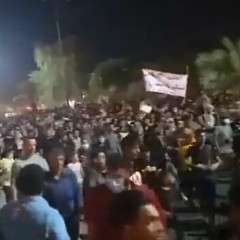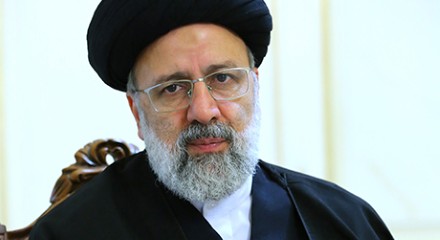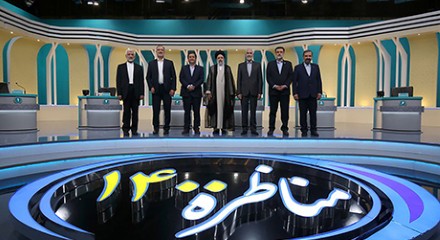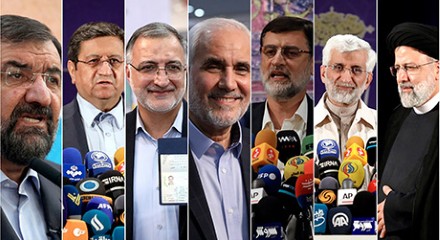From Isfahan to Tabriz, Karaj to Tehran, the slogans are clear: ‘Death to the dictator’, ‘Shame on Khamenei’, ‘Hands off Iran’. Yassamine Mather reports on the upsurge of protests

Protests over the lack of clean water that started in the Iranian province of Khuzestan have now spread to other parts of the country. In Lorestan, Kurdistan and Azerbaijan, as well as Tehran, demonstrators are showing solidarity with the people of Khuzestan and the slogans are getting more radical every day, On July 26 demonstrators in Tehran were shouting: “Death to the dictator!”
The water shortage in the middle of a predictable heat wave in Khuzestan has two causes: global warming, as well as human interventions in what should be a province with plenty of water. Over the last three decades, after the Iran-Iraq war, in what was clearly a series of political decisions, Iran’s Islamic Republic, wary of the Arab ethnicity of sections of the population in Khuzestan, built dams designed to divert water from this region to other provinces. Ironically Iran’s Arab population is mainly Shia and despite many attempts by Saudi Arabia and its allies to strengthen the separatist Salafi movement in southern Iran, there is no sign that the current protests have anything to do with foreign interventions or support for various jihadi/Salafi groups in the region.
Persians and Arabs have shown unity in the protests, giving the lie to accusations by the regime’s supporters that they are organised by pro-Saudi separatists or support Arab separatism. However, this has not stopped apologists for the regime blaming ‘foreigners’. The regime has a record of violently attacking such demonstrations and, so far, a handful of people have been killed. There have also been a number of arrests. However, so far we have not witnessed the kind of repression we saw during the protests of 2018 and 2019, where hundreds were killed. The figures I normally rely on are from leftwing opposition inside the country – the only source I trust on such issues. (Note that I refuse to quote Amnesty International or other such ‘human rights’ groups. In my opinion such organisations have a political agenda and the left should consider any claims they make about deaths/injuries in countries not aligned with the foreign policy of the United States with utter contempt.)
The protests come at a time when the country is facing a series of major crises. Covid-19 continues to take a heavy toll, vaccinations are proceeding at a very slow pace, and the outgoing Rouhani government is trying (and failing) to impose travel bans and lockdown in Tehran province and elsewhere. Meanwhile, the fear of failure in the suspended nuclear negotiations in Vienna have led to further price rises and the Iranian currency continues to fall. Against this background, the continuing and fast-spreading strike by contract oil workers has shown how organised workers can confront one of the most brutal dictatorships in the region.
The conciliatory tone of the supreme leader’s first response to the water protests of Khuzestan on July 23 could be an expression of this weakness. Ayatollah Ali Khamenei’s Twitter account is often used to reflect his reaction to the most banal daily events, yet it took him more than a week to express an opinion on the protests. Last Friday he pronounced:
The people showed their displeasure … but we cannot really blame the people and their issues must be taken care of … Now, thank god, all the various agencies, governmental and non-governmental, are working [to resolve the water crisis] and should continue with all seriousness.
Looking at this statement, you would have thought the Islamic republic had just come to power and is blaming the previous order for the disastrous situation. Or perhaps this is somehow out of the control of the supreme leader and unknown ‘others’ are to be blamed. Nothing could be further from the truth. The Shia state has been in control for over four decades, while Khamenei has been supreme leader for over 30 years!
However, the $64 million question is: why have we not seen the level of repression normally associated with any protest in Iran in the last few weeks, despite the hugely supported oil strike and widespread protests in all major cities? It is certainly not the case that the Iranian rulers are divided. As I have written before, the ‘reformist’ and conservative wings are converging towards each other and that was one of the reasons why the presidential elections were so lifeless – and, in the end, were boycotted by large swathes of the population.
Wrong
It is also wrong to assume that revolutionary forces are so strong and so well organised that the massive, ruthless security apparatus operating within the Basij, Herassat and Pasdaran (all parts of the religious state’s repressive forces) are incapable of dealing with the protestors. I also do not accept the idea that it is because we are in a period of transition between the outgoing Rouhani administration and that of Ebrahim Raisi. Security forces in Iran have always operated independently of the regime’s factions and will continue to do so. There must be other reasons.
First of all, unfortunately we should continue to expect the worst: there will be further severe and bloody repression. However, in addition to that, Iran’s rulers are working on more long-term solutions to stop protests and their reporting inside and outside Iran by limiting internet access. On July 26 the Iranian majles (Islamic parliament) delayed the passing of a controversial bill, aimed at “protecting users in cyberspace and organising social media”, which would have further limited citizens’ access to the internet.
The bill is interesting, in that it aims to replace foreign social media (Facebook, Twitter, Instagram, etc) with Iranian versions of these platforms, owned and controlled by the state, and monitored by the security services and armed forces.
It specifies that local and foreign service providers must adhere to the country’s rules and regulations. They must register in Iran and have a representative who could be held accountable if something Iranian regulators see as untoward happens on their platforms.
In addition to the widespread dependence of Iranians on the internet in many spheres, there are a large number of internet-based companies, many of whom will find it difficult to survive without access to international platforms. For example, Milad Monshipour, CEO and co-founder of Tap30, one of Iran’s online Uber-like services, tweeted on July 25:
This bill can not only restrict people’s access to global services like those of Google and Instagram, but it can also veer the digital industry towards destruction through creating new unclear permits and redundant regulations in addition to removing data ownership rights.1
A number of Iran-based internet companies have already closed down, with their staff moving to neighbouring countries.
Of course, the main aim of the proposed legislation is to increase state control. It will criminalise using banned services and virtual private networks that allow users to bypass state censorship of the various websites/applications used by most Iranians to access ‘western’ social media platforms. Users of such services can face prison sentences and substantial fines.
The proposed internet regulatory committee will include representatives from Iran’s Islamic Revolutionary Guard Corps, the Passive Defence Organisation and other law enforcement and state broadcasting agencies. The legislation also specifies that control of the country’s internet bandwidth must be handed over to the armed forces, while the methodology for deciding what constitutes data privacy must be devised by the intelligence ministry in cooperation with the armed forces.
Throughout the presidential election campaign, Raisi claimed he was opposed to any restrictions on the internet, but he can always blame the conservative-dominated majles for passing this legislation. It will then be up to the Council of Guardians and the supreme leader himself to decide whether to approve or reject the final version of the bill.
No doubt the conservative MPs who came up with this legislation are extremely rightwing, but they cannot be defined as fascists. As much as the Iranian left loves to prove its radicalism with its slogans about the “fascist Islamic Republic”, this cannot be reconciled with any serious definition of fascism.
As an example let me remind you that UK home secretary, Priti Patel, is also seeking to ban various social media posts, such as those that ‘glamorise’ migrant crossings, and I am sure she and her colleagues would like to extend such a ban much wider if they could. In fact Facebook, Instagram and Twitter are already effectively imposing censorship when it comes to those on the left supporting the Palestinian cause and condemning Israel too forcefully.
We should condemn Iran’s repressive Islamic Republic, and continue to call for its overthrow, but let us not fall for the inaccurate terminology used by its rightwing/reactionary opponents. We are calling for a different type of overthrow – not one from above, financed by the United States and executed with Israeli or Saudi help, but one from below conducted by the working class. We have nothing in common with Iran’s reactionary royalist supporters, and we must completely reject their inaccurate and misguided slogans and language.
Meanwhile, protests are continuing to spread across the country. From Isfahan to Tabriz, Karaj to Tehran, the slogans are clear: “Death to the dictator”, “Shame on Khamenei”, “Hands off Iran”. Ordinary people are showing unprecedented courage and determination in expressing their anger. However, there are no obvious divisions amongst the rulers, while the left is weak, divided and mainly in exile. So the suggestion that we are witnessing a revolutionary situation is in my opinion wishful thinking.
First published in the Weekly Worker



